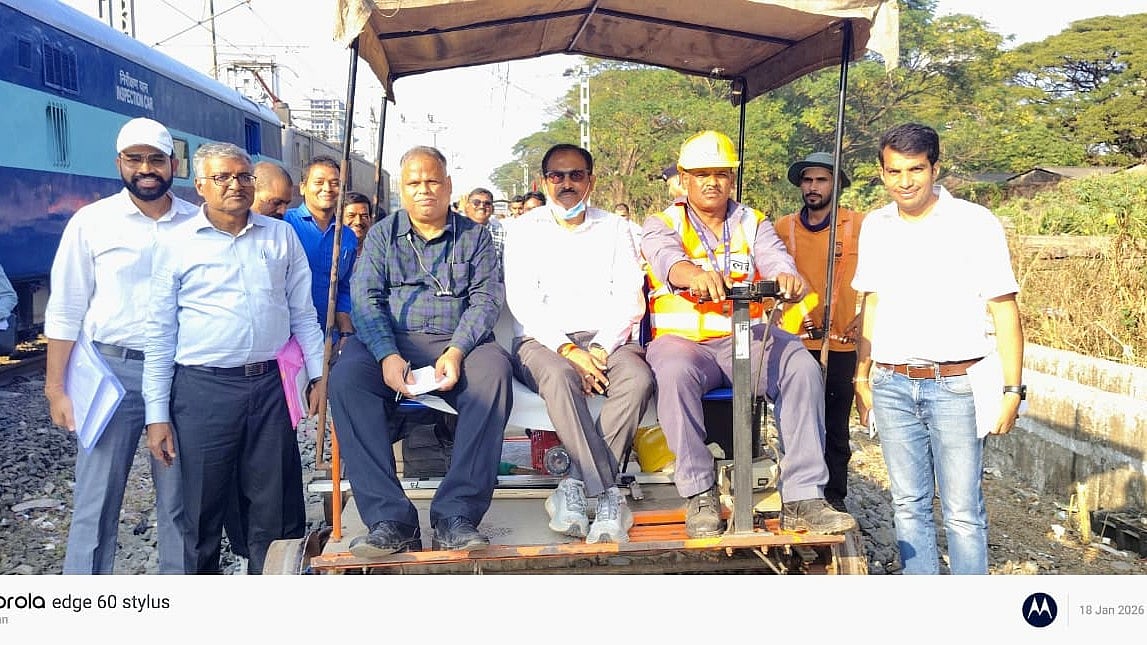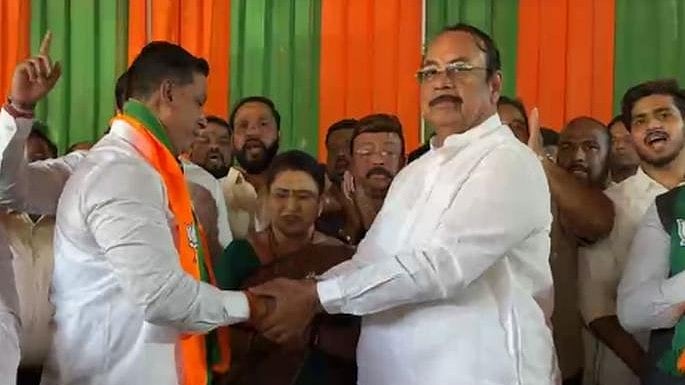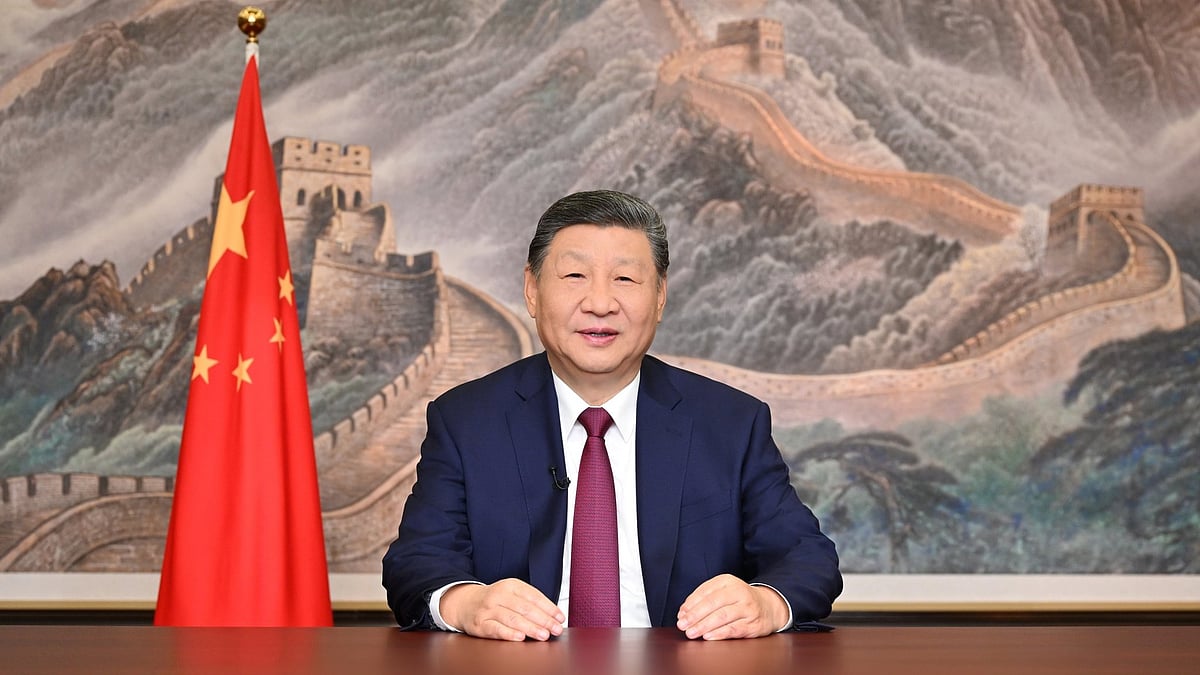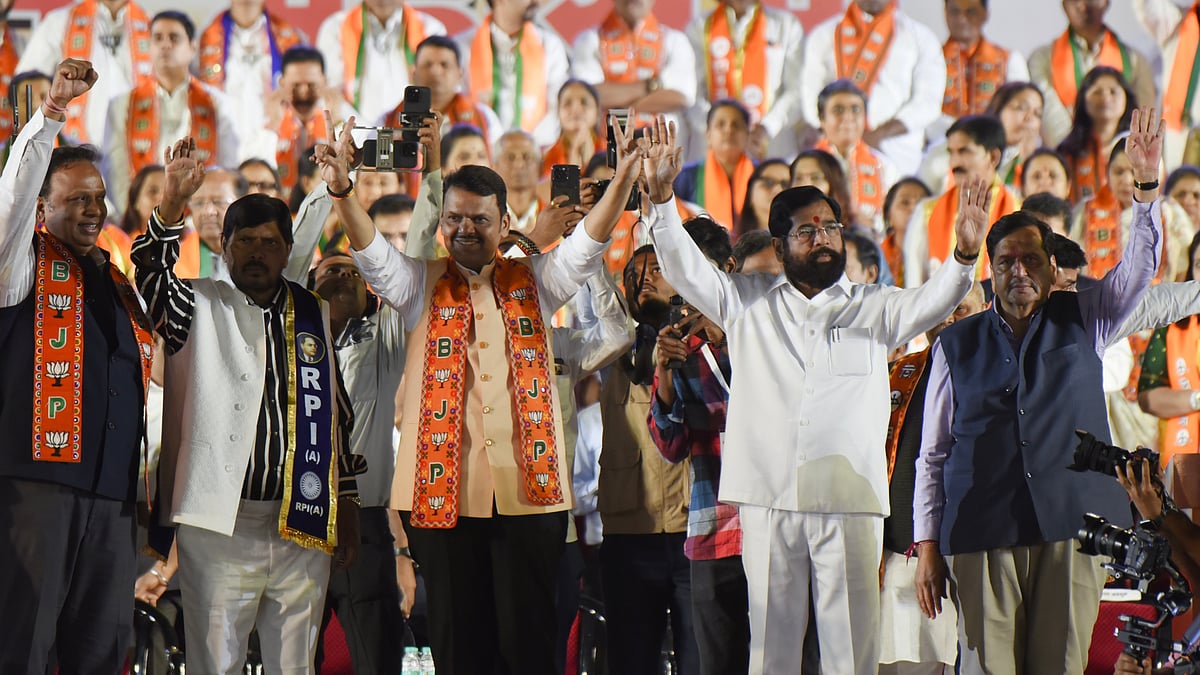Can you justify the unconstitutional lapse by quoting some examples from the past about the lateral system of directly recruiting senior posts of joint secretaries and directors in union government? The answer is “yes” if it happens to be law minister, Arjun Meghwal and union minister of state for personnel, Dr Jitendera Singh who vociferously defended the lacuna of not amending the provision of reservations for the 45 vacancies of senior officials which were recently advertised by UPSC.
None can deny the fact that lateral entry was institutionalised by Modi government in 2018 which had brought an end to the opaque system of aphorism practised by UPA regime but onus of rectifying another blunder of Congress government not to give reservations to SC(15 %),ST (7.5%) and OBC(27%) and EWS(10 %) squarely lied on the door of NDA’s personnel department which failed to come up to the expectations of these deserving groups. Secondly, stage was set to recruit the biggest lot of 45 senior officials of the rank of directors, joint secretaries and deputy secretaries in various ministries and departments .
But a huge controversy broke out when Leader Of Opposition (LOP) Rahul Gandhi took to social media platform X(Twitter) and accused the NDA government of fiddling with provisions of the constitution. He wrote, “Lateral entry is an attack on Dalits, OBCs and Adivasis. BJP's distorted version of Ram Rajya seeks to destroy the Constitution and snatch reservations from Bahujans. "Narendra Modi is attacking the Constitution by recruiting public servants through the 'Rashtriya Swayamsevak Sangh' (RSS) instead of the Union Public Service Commission (UPSC). By recruiting for important positions in various central government ministries through lateral entry, the reservation for SC, ST, and OBC categories is being openly undermined. I have always said that there is no representation of the underprivileged in the top bureaucracy and other senior positions in the country. Instead of improving this representation, lateral entry is pushing them further away from these top positions," he said. "This is a direct assault on the rights of talented youth preparing for the UPSC and a blow to the concept of social justice and reservation for the underprivileged,"
At this juncture, Union Law Minister, Arjun Meghwal was first to lambast Rahul Gandhi and held previous congress governments responsible for adopting the opaque system of recruiting the officials which was evident from the appointment of former PM, Manmohan Singh as finance secretary in 1971 and later choice of Montek Ahluwalia as chairman of planning commission. Meghwal said “"Prime Minister Modi has rectified the system by ensuring that recruitment now happens through the proper channel, namely the UPSC, which adheres to a strict set of rules and procedures."
The accusations and counter accusations rags on as motive is to score political point over each other. As per imforamtion given by MoS, Jitendra Singh in Rajya Sabha this year, in 2018, a total of 6,077 applications were received and the selection process was conducted by the UPSC. As a result, 9 individuals were appointed to nine ministries in 2019 and similar advertisements were also issued in 2021 and 2023, leading to 63 appointments over the past five years since later recruitment system’s inception in 2018.
As per micro details of the official data, a total of 63 senior officials have been recruited through the program since 2018, joining the bureaucracy, with approximately 35 coming from the private sector. It includes the recruitment of eight joint secretaries in 2019 and 30 officers (three joint secretaries and 27 directors) in 2022. Presently, 57 lateral entrants are serving across various ministries and departments.
As a ex chairperson of Standing Committee of All State Public Service Commission in India for 3 years and for chairman of Himachal Public service Commission, I can say with authority that backlog of vacancies in proportion to 63 officials can be cleared only if the union government creates the new posts to give justice to candidates belonging to SC, ST, OBCs and EWS w.i.e. 2018 to 2023 as large numbers of these eligible candidates might have crossed the age limit. At the same time, why did the personnel department not amend the recruitment rules to fulfil the constitutional mandate prior to appointing these officials, hence the concerned ministry should be held responsible for this blunder? Though PM has intervened yet 6 years have already elapsed and damage has been done to aspirants of deserving aspirants of four categories.
Lateral entry into senior government positions from private sector, other fields etc. has become a subject of hot debate in India which runs the risk of infuriation and infusion of negativity amongst the bureaucrats who form the backbone of the success or failure of any government in the states as well as Centre. Civil servants have enjoyed complete dominance over ruling echelons since independence and none could break this monopoly but now it is in danger as foundation of creating a parallel power centre was laid by Modi government in 2014 which veer round the direct recruitment of talent and intellect through UPSC to the posts of joint secretaries and directors in union government. Congress has tried to derive political mileage out of this controversy which may have latent support of civil servants who are bound to feel upset as their monopoly is being challenged through these direct recruitments that too, at senior level in bureaucracy.
A DIRECT FALLOUT OF LATERAL APPOINTMENTS
Demoralisation of the Bureaucracy: Meritocracy Concerns: Traditional bureaucrats who have risen through the ranks may feel demoralized if they see lateral entrants, who haven't undergone the rigorous training and long years of service, being appointed to senior positions. This could lead to a perception that meritocracy is being undermined. Career Progression Uncertainty: The practice could create uncertainty and insecurity among career bureaucrats regarding their own career progression. If lateral entries become frequent, it could diminish the incentives for long-term dedication and performance.
Integration Challenges, Cultural Fit: Lateral entrants may struggle to integrate into the bureaucratic culture, which operates on established norms, procedures, and hierarchies. This could lead to friction between traditional bureaucrats and the lateral entrants. Resistance to Change: The bureaucracy may resist the ideas and reforms proposed by lateral entrants, viewing them as outsiders who do not fully understand the intricacies of government operations.
Potential for Conflict of Interest: Private Sector Influence: Lateral entrants often come from the private sector or other fields, and there is a risk that their prior affiliations might influence their decisions in government roles, leading to conflicts of interest. Policy Bias: There could be concerns that lateral entrants might prioritize policies that favour their former industries or sectors, rather than the broader public interest.

Accountability and Transparency Issues: Lack of Public Scrutiny: Unlike traditional bureaucrats who undergo years of evaluation and public service scrutiny, lateral entrants might not be subjected to the same level of public accountability. This could raise concerns about transparency in the decision-making process. Limited Institutional Knowledge: Lateral entrants might lack deep institutional knowledge, which could affect the quality of their decision-making, especially in complex and nuanced policy areas.
Impact on Administrative Cohesion: Fragmentation of Authority: Introducing lateral entrants at senior levels might lead to fragmentation of authority, where the cohesion and unity of command within the bureaucracy could be compromised. This might result in inefficiencies and delays in policy implementation. Dual Reporting Structures: Lateral entrants might create parallel reporting structures, leading to confusion and inefficiency in the administration. Traditional bureaucrats might feel sidelined, leading to a breakdown in communication and collaboration.
Short-Term vs. Long-Term Focus: Short- Term Orientation: Lateral entrants, particularly those from the private sector, might focus on short-term gains and efficiency, potentially at the expense of long-term institutional stability and public welfare. Lack of Institutional Memory: With less experience in the government sector, lateral entrants may not fully appreciate the importance of institutional memory and continuity in policymaking, leading to decisions that might overlook long-term consequences. While lateral entry can bring in fresh perspectives, specialized skills, and a sense of urgency to the bureaucracy, it also carries risks of demoralization, conflicts of interest, and integration challenges. The success of lateral entry depends on how well these entrants are integrated into the system, how their roles are clearly defined, and how the potential negatives are managed to avoid undermining the morale and efficiency of the existing bureaucracy.
POSITIVE TAKEAWAYS
Lateral entry into senior government posts brings several positive takeaways: Infusion of Expertise: Lateral entry allows professionals with specialised knowledge from the private sector, academia, and other areas to bring their expertise directly into government roles, enhancing decision-making and policy formulation. Diversification of Perspectives: It introduces fresh perspectives that may not be prevalent within the traditional bureaucratic system. This diversity can lead to more innovative solutions to complex problems. Increased Efficiency: Professionals from the private sector often bring a results-oriented approach, focusing on efficiency and performance, which can help streamline government processes and improve service delivery. Bridging Skill Gaps: Lateral entry can address specific skill gaps within the government, particularly in areas like technology, finance, and management, where specialized knowledge is crucial. Encouragement of Meritocracy: It fosters a meritocratic culture by emphasizing skills and expertise over seniority or tenure, potentially leading to more competent leadership in government. Flexibility in Governance: Lateral entry provides the government with the flexibility to adapt to emerging challenges by quickly bringing in professionals with relevant experience, which is especially valuable in fast-evolving sectors. Strengthening Public-Private Collaboration: It helps in creating stronger ties between the government and the private sector, enabling better public-private partnerships and collaboration on national projects. Reducing Bureaucratic Red Tape: Professionals entering through lateral entry may not be as constrained by traditional bureaucratic procedures, potentially reducing red tape and expediting decision-making processes. These benefits can collectively contribute to more dynamic, efficient, and responsive governance.
Lateral appointments, while controversial, have the potential to bring much-needed expertise and fresh perspectives to the Indian bureaucracy. However, the NDA government’s failure to amend recruitment rules to include reservations for SC, ST, OBC, and EWS categories represents a significant constitutional lapse. This oversight has not only sparked political controversy but also raised questions about the government's commitment to social justice. Moving forward, it is crucial for the government to address these concerns to ensure that lateral entry is implemented in a manner that is both inclusive and beneficial to the nation as a whole.
(Writer has been ex-chairperson of the Standing Committee of All-State Public service Commissions in India and former chairman of HP Public Service Commission)










